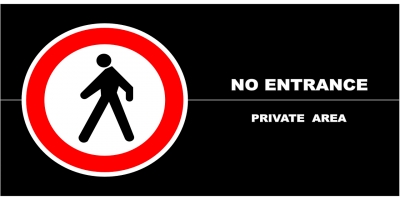Privatization of land in Uzbekistan

On August 13, 2019, the Law on Privatization of Non-Agricultural Land Plots (the “Law”) was adopted. An unofficial translation of the Law is available in English at the following link: https://kostalegal.com/publications/law-on-privatization-of-non-agricultural-land-plots. The Law will come into force on March 1, 2020.
The adoption of the Law is an initial point from where the land privatization reform starts. Continued state ownership of lands is subject to partial termination as the land privatization process mainly concerns non-agricultural land plots. As per the Article 8 of the Land Code, “agricultural land is land provided for agricultural needs or designated for such purposes. It includes irrigated and rain-fed lands, croplands, lands with hayfields, permanent grassland, permanent crops and vineyards.” Land plots that fall outside the definition provided will be within the scope of the Law.
Legal experiment
Together with the Law, Presidential Decree No. UP – 5780 of August 13, 2019 (the “Decree”) was signed. Under this document, the Government clarified the reason of delayed effective date. As per the Decree, a legal experiment for testing the procedure of non-agricultural land privatization will be carried out in Syrdarya region of Uzbekistan before the Law enters into force. The experiment is aimed at identifying shortcomings and may help amend the Law. Moreover, the adoption of the Decree implies that the Law will be effective within the territory of Syrdarya region before it officially enters into force. By the end of September, corresponding legislative act will be signed for the experiment to start.
Institutional framework
According to the Law, the regulation of land privatization is centered on the following government authorities:
- The Cabinet of Ministers – among other things, (i) develops, approves and publishes urban planning documentation, (ii) determines the procedure for privatization of vacant land plots, (iii) sets the amount of fee and method of payment for land plots being privatized, (iv) establishes the procedure for determining the market value of land plots;
- the State Committee of the Republic of Uzbekistan on Land Resources, Geodesy, Cartography and State Cadaster – among other things, (i) carries out state registration of rights to land plots, (ii) manages land plots inventory, (iii) defines area and boundaries of land plots that are subject to privatization, (iv) prepares documents on vacant land plots subject to privatization;
- the Fund for Urbanization Development ("the Fund") – (i) stores the money received from land privatization in order to use them for urbanization processes, (ii) sells land plots at e-auctions as soon as works on infrastructure development are completed;
- local municipalities (khokimiyats) – (i) take relevant decisions on land plots privatization, (ii) identify vacant land plots in order to make them available for privatization through e-auctions, (iii) identify land plots to be transferred to the Fund;
- the Agency for State Assets Management – organizes e-auctions and guarantees their proper functioning.
The concept of Land privatization and its key principles
“Land privatization” for the purposes of this Law is the transfer of land rights to private parties that are residents of the Republic of Uzbekistan. According to the Law, privatization is based on the principles of legality, voluntariness (privatization is carried out solely on a voluntary basis), a fee-based principle, the unity of privatized land plots and immovable property located on them as well as the principles of openness and transparency (free access to all information concerning privatization).
Subjects of the Law
As per the wording of the Law, residents of the Republic of Uzbekistan, both individuals and legal entities are eligible to privatize land plots. Non-residents and stateless persons are not regarded as subjects of the Law and, as a result, not allowed to privatize land plots. Stateless persons and non-residents are not entitled to acquire privatized land plots unless otherwise provided by the Land Code and/or international agreements of the Republic of Uzbekistan.
Objects of the Law
The Law explicitly lists the types of land plots that are subject to privatization. Similarly, the Law also indicates the list of land plots that are not targeted for privatization. (Please see Table 1)
Table 1. Land plots subject to privatization
As the Law provides, resident legal entities are allowed to privatize land plots on which the buildings, structures and industrial infrastructure facilities belonging to legal entities are located, as well as the land adjacent to them to the extent necessary to carry out production activities. Whereas citizens are allowed to privatize land plots provided to them for individual housing construction and maintenance of a residential house.
In the cases of share or joint ownership of real estate, the land privatization shall be agreed upon by all owners. Failing this, the land privatization shall be carried in accordance with the court decision.
Mechanisms used for privatization
The Law has clearly divided the land plots subject to privatization into 2 categories: land plots with immovable property and vacant land plots. Consequently, the Law envisages two procedures for land plots privatization. Privatization of land plots with immovable property is carried out through buyout. Vacant land plots are privatized through e-auctions. (Please see Table 2)
It is to note that the Law foresees the adoption of the Regulation on the Provision of State Services on Land Privatization by the Cabinet of Ministers. Such Regulation shall establish more clarified privatization procedures and, among other things, may provide for applications of standard forms.
Table 2. The procedures for land plots privatization
Pursuant to the Law, an applicant may be denied the right to privatize the land plots only in the following cases:
- lack of grounds for privatization;
- existence of pending legal procedures in respect of land plots being privatized;
- prohibition or arrest imposed on real estate located on privatized land;
- provision of inaccurate, controversial or distorted information in the application;
- non-payment or incomplete payment for the land plot in a timely manner;
- approved master plans of settlements as well as acts of authorized state bodies on withdrawal of the land plots for state and public needs and on construction of infrastructure facilities that were adopted prior to the application for privatization directly preventing privatization.
Unsatisfied applicant has a right to appeal to the Administrative Court against decisions taken by the Commission.
Post-privatization ownership
As the Law stipulates, the privatized land plots gain a status of a private property and become objects of civil circulation. The owners of the privatized land plots receive legal protection of their private property and an obligation to respect others’ private property – others' privatized land plots.
The Law allows for the seizure of privatized land plot only in the following cases:
- foreclosure proceedings in relation to the land plot;
- nationalization;
- requisition – exclusively for protection of rights and legitimate interests of citizens in cases of natural disasters, accidents, epidemics and other extraordinary circumstances;
- confiscation – by court decision under the circumstances specified by criminal procedural law.













